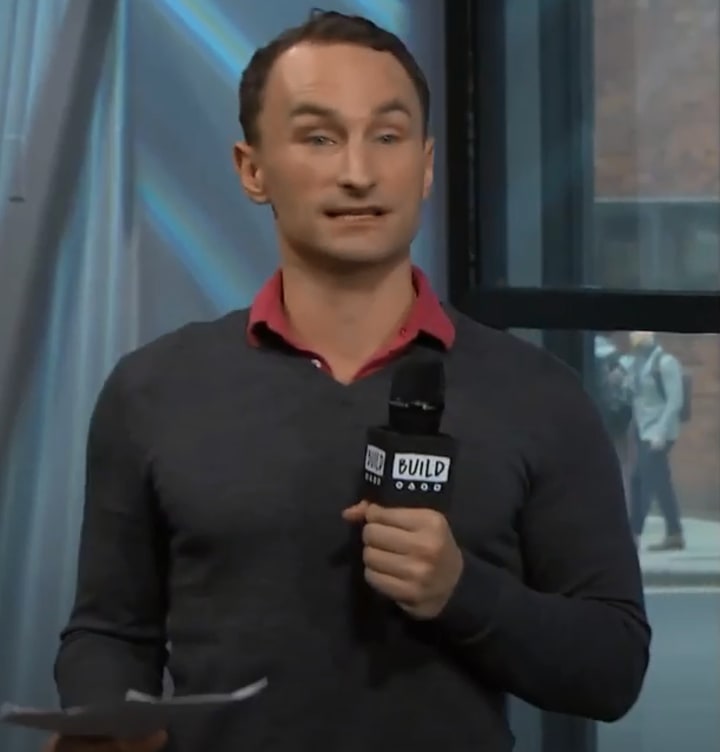Obesity and decision-making
"You don't have to lose weight and stay thin" X "you CAN'T lose weight and stay thin"

This is one of those topics I usually avoid. First, because there are lived-experience individuals involved in fat acceptance activism to whom this is an agenda issue. As such, it is not my place to say anything, policy, and movement-wise. Second, because ingesting and digesting the primary scientific literature on this subject requires at least a solid background in physiology, preferably also solid in biochemistry, epidemiology, and, of course, the social sciences. It is by nature an interdisciplinary issue. I have that background but I don't believe in condescendingly shoving information down other people's throats. Unsolicited advice is just that.
A few days ago a 2018 Huffington post article with the title "Everything you knew about obesity is wrong" was shared on social media again, and again praised by non-scientists. The article is fundamentally wrong. Author Michael Hobbes is well-meaning and empathetic but he lacks the basic requirement to write that specific article: scientific training. He has zero, and it shows. Neither is he a lived-experience fat activist. This is a screenshot from his podcast:

Finlay MacKay's photographs for the article are beautiful. Unfortunately, the content is just plain wrong, and it's wrong in the two aspects of this complicated issue: the individual (the physiology and psychology of obesity) and the social (or how social inequality and minority oppression are determinant factors in overweight malnutrition). The result of Hobbes' shortcomings is an article with damaging content.
The article's failure to make sense of the literature on the physiology and psychology of nutrition resulted in an argument that could be summarized in the following sentence: "If you are fat, you cannot possibly lose weight and stay thin because it is biologically impossible. All you can do is fight fatphobia".
That's a life sentence. And, as I said, it is fundamentally wrong. While it is hard to lose weight and stay thin (weight loss maintenance), and there are biological processes at work ("energy compensation"), the chief determinants for weight loss maintenance failure are behavioral and environmental. They can be circumvented.
In order to make scientific information useful to the end-user in health decision-making, the esoteric, technical information must be "translated" into plain English and segmented for different educational levels. That is not the job of a "general" journalist. Actual science journalism requires a science background, otherwise, this is what we get: something at odds with the evidence. The other challenge is to clarify which facts and phenomena have causal explanations, and which ones have correlational explanations. For example, at this point, we all know that the SARS-CoV-2 virus is the causing agent for COVID. What about fibromyalgia, suicide, autism, and chronic inflammatory conditions? We do have a wealth of published evidence. However, it is predominantly correlational. Certain factors may be so strongly correlated with a given health condition that we may consider them "predictive".
Obesity is a multifactorial condition with a huge array of physiological and psychological consequences. We know, for example, that certain diet designs, if combined with unique individual physiological characteristics (such as the state of their gut microbiota), will result in a number of metabolic and neurologic outcomes. Diets with a high calorie deficit (usually higher than 15%) frequently result in significant thyroid hormone decreases. Among (many) other consequences, low thyroid hormone levels will decrease basal metabolic rate and may cause depression, blurred vision, brain fog, and other neural outcomes.
While we do have a fair amount of data and mechanistic models about weight loss, we're still crawling in the understanding of weight homeostasis. Here you have the links to the article folders I have created for my research: one about weight loss maintenance and another one about energy compensation mechanisms. All you have to do is open the article folders and observe that we still don't have all the pieces of the puzzle.
We do know, however, that unlike what was published in the Huffington Post article, diets work and weight loss can be maintained long term. Unfortunately, given the lack of interdisciplinary work in this field, we still have several authors from the humanities and psychology unable to make sense of this literature, repeating the "diets don't work" mantra in complete disagreement with scientific evidence.
The social aspect of obesity requires a critical eye on the epidemiological data about its correlation with social, economic, and educational variables. It is fair to say that obesity is predominantly an issue that affects the poor, as detailed in the book "OBESITY POVERTY and A New Public Health Challenge" (edited by Manuel Peña and Jorge Bacallao). Peña and Bacallao's book is about Latin America, where I conducted my research as well. There, as here in the USA, obesity affects low-income urban minorities more than affluent Caucasians. Economic inequality hits urban minorities by the inverse relation between nutritional content and price, by lack of availability of good quality food (due to food deserts and other urban segregation problems), and by the indirect consequence of low food quality and other obstacles to good health. For example, loss of gut microbiota diversity with northbound migration (from Latin America) is associated with changes in digestive patterns and obesity.
The medical consensus about the detrimental effects of obesity and inactivity was built with decades of research and policy-making initiatives. Finally, in May 2004, the World Health Organization issued its Global Strategy on Diet, Physical Activity and Health (DPAS). A common understanding about the combination of poor nutrition and inactivity, perverse consequences of urbanization for low-income communities, required concerted action.
That's when I came into this specific policy and research story: I was in Brazil and, together with BIREME, a PAHO organism, we worked to develop solutions to frontline health care workers' information needs. It didn't quite work at the time. We learned a lot and moved some steps ahead in the arduous quest for interdisciplinarity. Significant research efforts were being made to advance the understanding of hunger and overweight malnutrition under poverty, especially by Dr. Carlos Augusto Monteiro, from the University of Sao Paulo.
The overly simplified approach to the social determinants of obesity adopted by Hobbes in the Huffington Post article simply fails to outline the big picture.
The question remains as to how we should approach obesity, if at all. As a researcher, my role is to provide scientific evidence and scientific models to improve our understanding of reality and, in doing so, to improve the quality of society's decisions and policies. That includes emphasizing when there is not enough data to support an assertion, no matter how likely we "feel" it is.
It's also important to stress the relationship between science and medicine. Physicians are not scientists (or, in the rare occasions that they are, they are mediating knowledge transfer from science to an applied practice). However, they, too, have an obligation to remain as neutral and objective as possible. The cases in which fat people were disrespected, humiliated, and denied treatment because the physician felt their obesity disqualified them are horrible and unacceptable.
Whether obese individuals should or should not adopt a weight loss program is up to the fat individuals to choose. Not me, not you: them.
It is up to us to provide a neutral (decision-wise) and accepting environment for fat individuals and to confront discrimination. This is the inclusive thing to do. To tell fat people that they must remain fat and give up any attempt at losing weight is authoritarian. That is exactly what Hobbes did and many other people are doing now, and it's wrong.
Finally, let's remember other instances where well-meaning outsiders tell members of a certain group how they should feel and act. It's always bad. For example, the contrast between the Iranian "no hijab day", when Iranian women claimed their *right* to *not* wear the hijab, and the authoritarian French government decision to *forbid* Muslim women from wearing their hijab.
Hijab wearing - ban, right, or mandate - is not up to us, non-Muslims, to decide or even to manifest our opinion. I support Muslim women's rights. Whatever they want to wear is their right to decide.
Likewise, it's not up to me to decide whether fat people should or should not lose weight. They can be fat and healthy but even if they are not, it's not up to me to give unsolicited advice.
It's not up to Michael Hobbes or the Huffington Post either. That was a bad move.
Obesity
About the Creator
Marilia Coutinho
Marilia is a multi-disciplinary scholar who publishes on health, politics and culture. Her background include biology, biochemistry, ecology and sociology. She also writes memoir pieces about her unusual life and fiction pieces based on it.






Comments
There are no comments for this story
Be the first to respond and start the conversation.